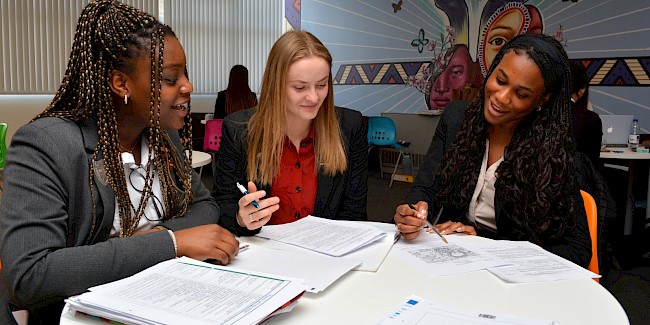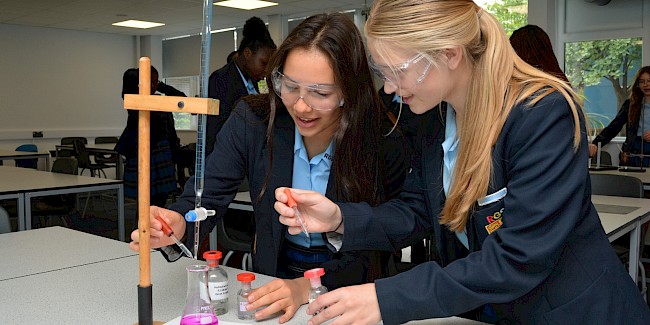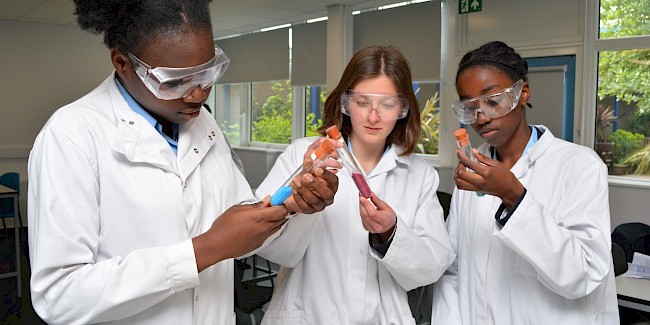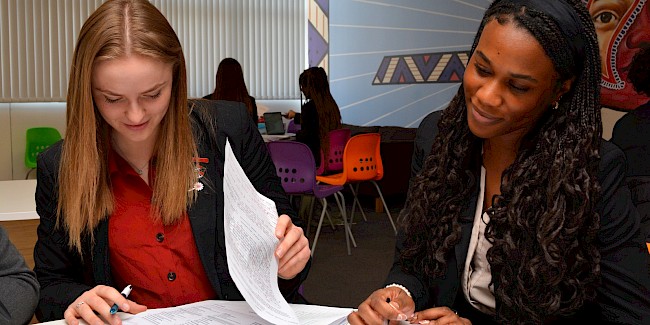Students’ academic studies at Post 16 are complemented by the extra-curricular opportunities and IB learner profile that is intrinsically linked to their studies. As part of their Diploma students must complete a number of hours under CAS (Community Action and Service). This enables them to access the wide variety of opportunities on offer to sixth formers at the Rochester Grammar School such as Trips and Visits, Student Leadership, Team projects (Duke of Edinburgh, NCS etc.) and getting involved in extra-curricular activities run by the school.
For more detailed information about our provision within the Sixth Form, please refer to our Sixth Form Area of this website
A Curriculum For All
The Rochester Grammar School’s duties with regards to equality are in eliminating discrimination and other conduct that is prohibited by the Equality Act 2010. This is achieved through the fostering of good relationships, promoting equality of opportunity between people and offering a broad and diverse curriculum that is accessible by all pupils.
The Rochester Grammar School aims to promote students’ spiritual, moral, social, and cultural development, with special emphasis on promoting equality, diversity and eradicating prejudicial incidents for pupils and staff. Our school is committed to not only eliminating discrimination, but also increasing understanding and appreciation for diversity.
We aim to continuously review and improve the implementation of equality related policies and procedures along with our whole school curriculum. This ensures that it continues to result in outstanding outcomes for all pupils, with no discrimination faced on the basis of race, gender, disability, religion/belief, sexual orientation or age.
At Rochester Grammar School, all teachers are teachers of SEND and are accountable for the progress and development of all students. Quality First Teaching is our first step to support students with SEND. Teachers work with the SENCo to implement the graduated approach (assess, plan, do, review) to ensure that student needs are met and the curriculum is accessible. The adaptations that we make include, but are not limited to:
- Differentiating the curriculum to ensure it is accessible to all students
- Adapting class resources
- Using recommended support aids (such as coloured overlays and laptops where necessary)
- Implementing the access arrangements in line with JCQ regulations
- Adapting our teaching in order to support the recommendations on the Individual Profile for each SEND students
If stakeholders would like further information of any aspect of our curriculum please contact the school office at office@rochestergrammar.org.uk



